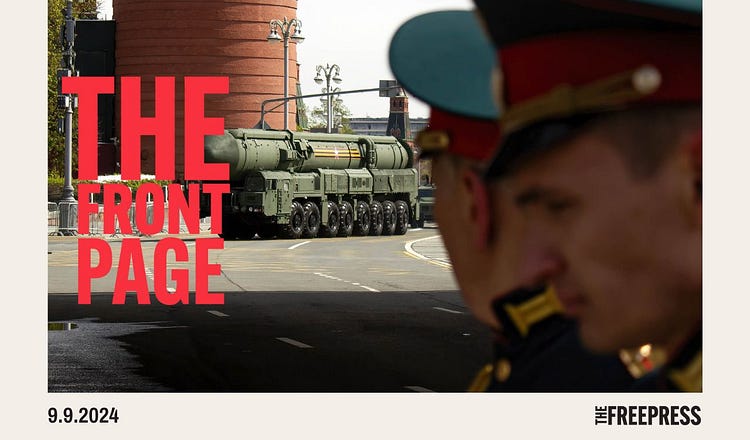The Front Page: America’s Weakness Is a Provocation

Participants look at the Topol-M mobile launcher of intercontinental ballistic missiles as it leaves the Red Square immediately after the Victory Day Parade in May. (Photo by Vlad Karkov/LightRocket via Getty Images)
General H.R. McMaster on the dangers of ‘de-escalation.’ Plus: River Page reviews ‘Reagan.’ ‘Brat’ summer is over for Harris. And much more.
317
It’s Monday, September 9, and this is The Front Page, your daily window into the world of The Free Press—and our take on the world at large.
Today: The media can’t decide who is winning the election, the keys to victory in the Keystone State, River Page asks: Is “Reagan” being trashed for being conservative—or is it just plain bad? And more. But first: …
Continue Reading The Free Press
To support our journalism, and unlock all of our investigative stories and provocative commentary about the world as it actually is, subscribe below.
$8.33/month
Billed as $100 yearly
$10/month
Billed as $10 monthly
Already have an account?
Sign In

